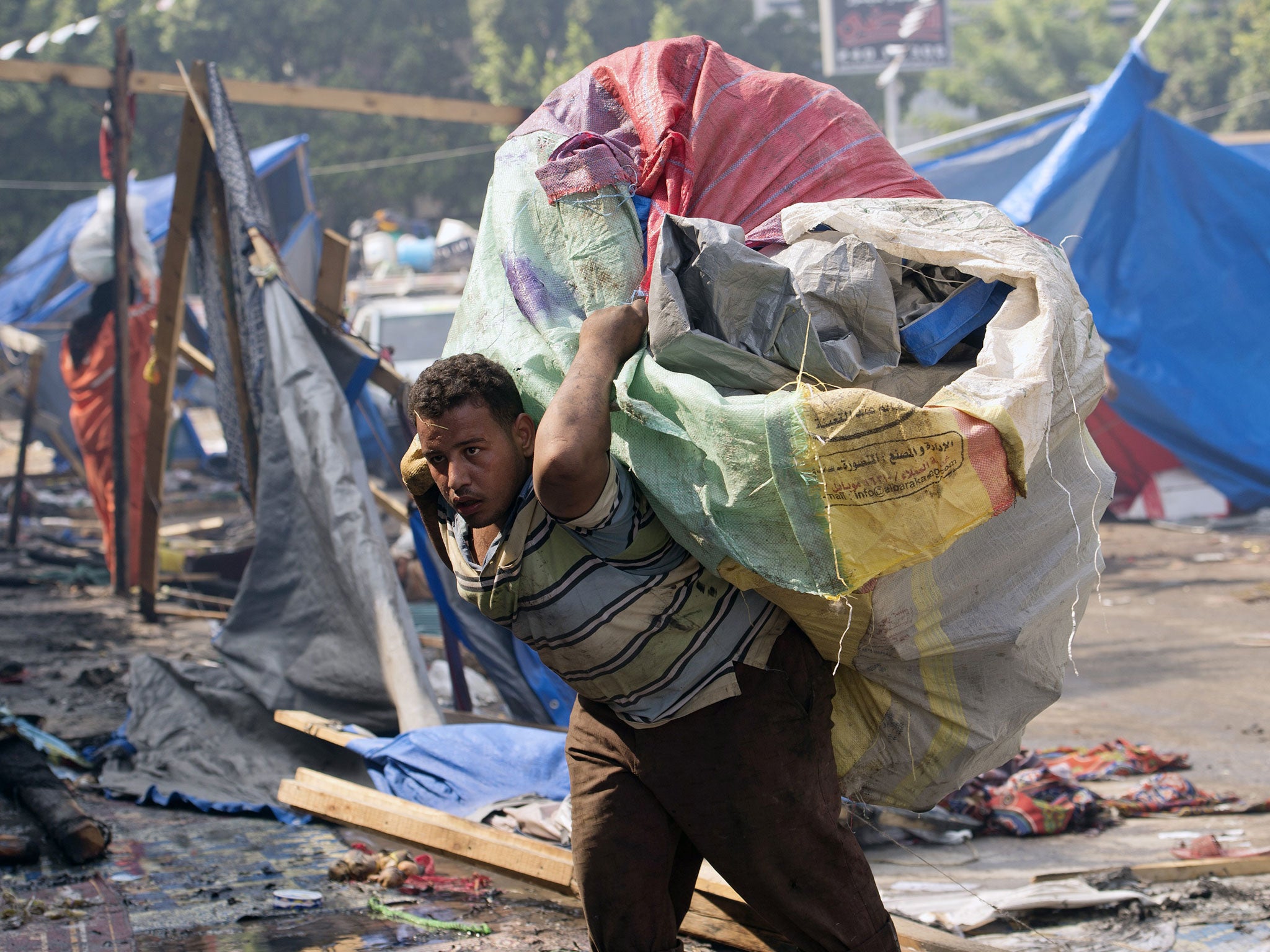The West must finally see Egypt as it is, not as we would like it to be
The Western world cannot afford an Egypt mired in protracted disorder, but the unpredictability of its neighbourhood excludes the usual treatment


So what, contemplating the carnage in Egypt, does the Western world do now? It is not hard to imagine the scurrying going on in capitals, where presidents, prime ministers, ambassadors and strategists are all far away from their desks. International calamities have a habit of erupting during the holidays of high summer or deep midwinter, making it all the more likely that one ill-judged response will follow another. But how the United States and Europe address a crisis that combines the indiscriminate brutality of Tiananmen Square with the enduring volatility of this neighbourhood demands more careful consideration than there is strictly time for.
Above all, the scale of what has happened must not be underestimated. The military assault on the Muslim Brotherhood’s protest encampments cost, at the latest official assessment, more than 500 lives. Ruthlessness, ineptitude, naivety and an acceptance of martyrdom may have played a part in increasing the death toll. But that is no excuse. This was a ferocious military crackdown, causing casualties all over the country, from Suez and Alexandria in the north, to Aswan in the south. For all the ferocity, though, and the cordons and the curfews, it is not obvious that the army will be able to keep order nationwide. We may be looking at chaos rather than incipient civil war.
And chaos not just anywhere, but in a country of more than 80 million people, a majority of them under 24 with – in terms of paid employment – nothing like enough to do. The most populous country of the region, Egypt links the Arab and African worlds. To the north are Israel, Gaza and Syria – whose combined potential for disruption needs no further explanation. Nor should it be forgotten that Egypt controls the Suez Canal, still the crucial route for East-West shipping. Or that Egypt has long enjoyed huge international sympathy because of its distinct history and identity. The Western world cannot afford an Egypt mired in protracted disorder.
Egypt’s relative proximity and the unpredictability of its neighbourhood exclude the treatment the West meted out to China after Tiananmen Square. Beijing was essentially confined to a diplomatic deep freeze. As always, of course, there was more rhetoric than reality, but China and its leaders could be ostracised because trade relations were nothing like as close as they are now and China was far away and self-contained. Nor, realistically, had there been any serious chance of democracy breaking out in China as a result of the protests. The West was always more spectator than actor in an alien land.
Egypt is different. The US, in particular, has been deeply engaged there since 1979 as part of the peace treaty with Israel. It is an engagement that was to a large extent military and allied to security guarantees – which may explain why President Obama showed such reluctance to switch sides as the popular challenge to Mubarak’s rule mounted and why, when the military ousted the elected Muslim Brotherhood president, Mohamed Morsi, the US (and most of its allies) shilly-shallied so disgracefully in calling it a military coup. Not only would a coup have sounded far worse than “the formation of a military-backed government”, it would have obliged the US to suspend military aid – and with it, Obama was clearly persuaded, the last fragments of American leverage. You can understand, if not support, the argument that some leverage is better than none.
Yet the belief that the US, or Europe, has been in a position to exercise much, or even any, leverage in Egypt since the overthrow of Mubarak is largely wishful thinking. It was an illusion, and one that has landed us in the predicament we find ourselves in today.
Among the early mistakes the West made was not to anticipate the end of Hosni Mubarak’s rule long before his departure was forced. It was easier to deal with the old ally – as, by the way, it is easier and more convenient to deal with the Soviet-era potentates in Uzbekistan and Kazakhstan, who are also in the twilight of their years – without paying too much attention to the demographic forces swirling around him. At least Central Asia, unlike Egypt, is not even close to our backyard.
A second mistake was to exaggerate our power to influence, let alone control, events. Oh yes, we courted the young telegenic protesters on Tahrir Square; our NGOs flooded in to teach the basics of (mostly US-style) democracy; we talked the language of constitutions and conventions and ballot boxes, and we lauded Egypt’s growing electoral literacy. We even managed, just about, to avoid the fatal error we made with the Palestinians – to encourage elections, and then reject a result not to our liking. But when President Morsi was deposed by the army, our double standards once again homed into view. A new government, however distasteful, and new elections would give Egypt a second chance to produce a result that we – and our young friends of all those months ago on Tahrir Square – might prefer. No wonder so many governments chose not to call the coup by its proper name. Egyptians, of all persuasions, have every right to question our good faith.
Amid the ruins of the West’s misfired good intentions stands one lone and tragic figure – Mohamed ElBaradei – who, through no fault of his own, epitomises the way in which we have misread today’s Egypt for so long. A distinguished lawyer and diplomat, an accomplished international civil servant who was awarded the Nobel peace prize for his work at the International Atomic Energy Agency, ElBaradei belongs to Egypt’s urbane elite. He was the face of Egypt’s future we hoped for. We saw him as a transitional successor to Mubarak, then as the ideal first president of a democratic Egypt. But the only leadership post he actually obtained – and that not without dispute – was as acting vice-president for international affairs after the coup. It was a clear sop to Western opinion, designed to make the unacceptable just acceptable enough.
ElBaradei lasted just one month, resigning as the army was ordered in to crush the Muslim Brotherhood. How could he not? With him went, or should have gone, any illusions the West still cherished – because Egypt is not a country of urbane ElBaradeis, but a vast, backward country with millions of young and poor, who urgently need training and jobs and some tangible improvement in their daily lives.
It is here, in education and the economy, that the West’s efforts should have been concentrated from the outset. And perhaps, with our illusions about Egypt and its supposedly benevolent military regime now shattered, this is where a new start can be made. But without civic order, or at least order that enjoys broad popular consent, even such basic assistance will be harder. We are damned if we maintain relations with a regime that has slaughtered so many of its own people, but also damned if we don’t. The West needs an Egypt that is calm and secure, an Egypt that settles its internal differences without resort to arms. As of this week, such an Egypt looks very far from reality. But it is an Egypt that most Egyptians – few of whom ever shared the West’s illusions – would also want for themselves.
Join our commenting forum
Join thought-provoking conversations, follow other Independent readers and see their replies
Comments
Bookmark popover
Removed from bookmarks